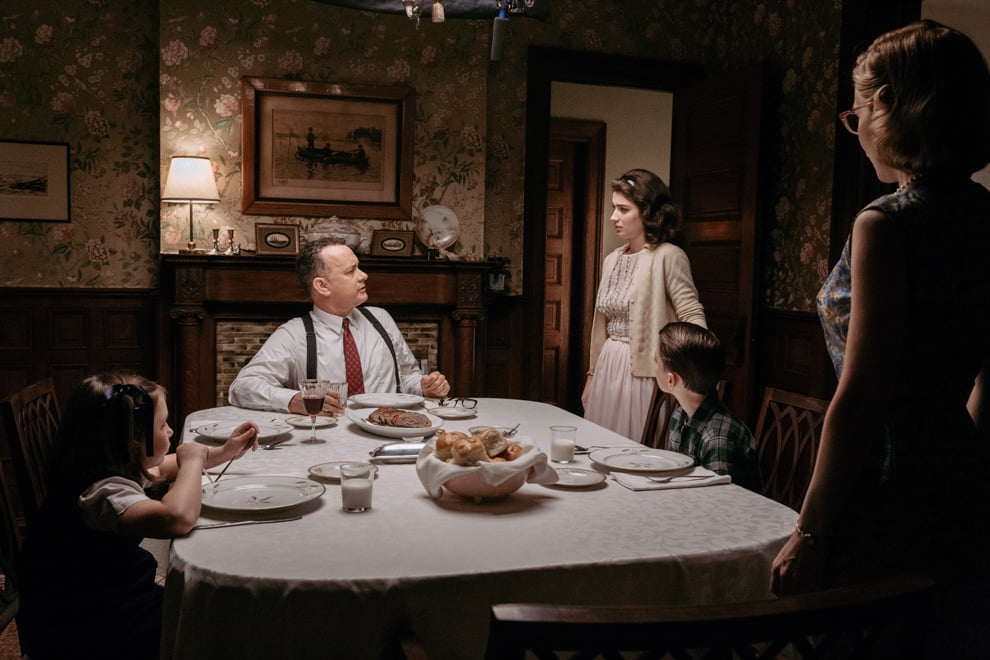Edgy politicking doesn’t always equal artistic boldness in Steven Spielberg’s new film “Bridge of Spies.” The newest work by the director has been awaited for some time, especially after the gap between this and his previous movie, 2012’s “Lincoln.” However, if we can say “Lincoln” was constantly daring in its approach to history, we can’t say the same about “Bridge of Spies.” It sets its sights on the Cold War, but merely ends up leaving us cold and hungry for something that isn’t just a light night out on the town.
Based on a screenplay by Matt Charman and the Coen Brothers, the movie concerns the real-life case of Francis Gary Powers, the American pilot who in 1960 was captured by the Soviets after his U-2 was shot down over Russia. Tom Hanks portrays James Donovan, the lawyer assigned to negotiate the release of Powers. Donovan devises an ingenious deal for the Soviets: If the Soviets give back Powers, the Americans will return Rudolf Abel (Mark Rylance), a painter who was arrested and tried as a spy by the FBI. Donovan must juggle the stresses of his biggest case yet and the needs of his suburban wife (Amy Ryan) and kids.
Spielberg tracks the complex back-and-forth between the two superpowers with sober precision. It’s as polished a movie as we’ve come to expect from an old master like Spielberg: clean cinematography, thrilling set pieces and performances in the running for Oscar nominations. Hanks and Rylance, in particular, express an electric rapport in their scenes that helps distinguish this reimagining of the Cold War. Their relationship — wise-cracking lawyer and client — makes for unlikely humor that lightens the tone of an otherwise serious movie.
“Aren’t you worried?” Hanks asks his client Rylance. “Would it help?” Rylance snaps back in a voice half-caught between drollness and outright contempt.
When we move from America to Russia in the film’s second half, Hanks eases the transition with ineffable charm and a total commitment to his performance. In Russia, we follow Hanks’ character as he zigs in and out of Soviet staterooms, dingy hotel rooms and torture chambers, thinking of a way to pull off the swap in style. Such backdoor politics might be cumbersome or borderline boring in another director’s hands; not so with Spielberg. To him, artistic brilliance means the ability to craft the most technically perfect story imaginable. His filmmaking style never leaves us confused; polished accessibility defines Spielberg’s works, and with “Bridge of Spies,” he succeeds.
And yet, “Bridge of Spies” leaves much to be desired by those wishing to be challenged. Spielberg’s subject — the beginnings of the Cold War — begs for a deeper, more complex engagement than Spielberg the people-pleaser is willing to give. “Bridge of Spies” adds very little to the contemporary discussion of the Cold War’s aftermath and Spielberg recycles the old clichés of the Cold War movie. The Americans are morally ambiguous. The Russians are comically villainous. The characters who propel the drama symbolize obtuse standards of righteousness. And, of course, there’s inevitably a literal showdown between East and West. (In this case, the movie, true to the promise of its title, climaxes on a bridge filled with German and American spies in the dead of night. In these moments, obviousness overtakes subtlety for the worse.)
We’ve seen this story told before, and the best iterations have always had a striking edge. The political movies of Frank Capra — one of Spielberg’s biggest influences — reaffirm one’s beliefs in the ideals of American democracy. At the same time, however, Capra’s films feature earthy, true-to-life characters that transcend ideology. By contrast, in “Bridge of Spies,” we’re lucky if we feel anything remotely human or organic. Its personality gets lost in the hazy blur of European men in suits and preachy, dramatic speeches.
But in the end, personality doesn’t matter much when you have such a well-told yarn as “Bridge of Spies.” One doesn’t feel its 140-minute running time as Spielberg keeps it engaging and entertaining throughout. The Hanks-Rylance rapport is worth the price of admission alone. It may not be Spielberg with guns a-blazin’ (“Jaws”, “E.T.” and “A.I. Artifical Intelligence”), but it is a historical drama with Spielbergian personality. We couldn’t say the same thing about “The Theory of Everything” or “The Imitation Game,” 2014’s generic and banal Oscar-bait biopics. At least when Spielberg has an off day, we can expect to be razzle-dazzled by great style and even greater storytelling.
Contact Carlos Valladares at cvall96 ‘at’ stanford.edu.
